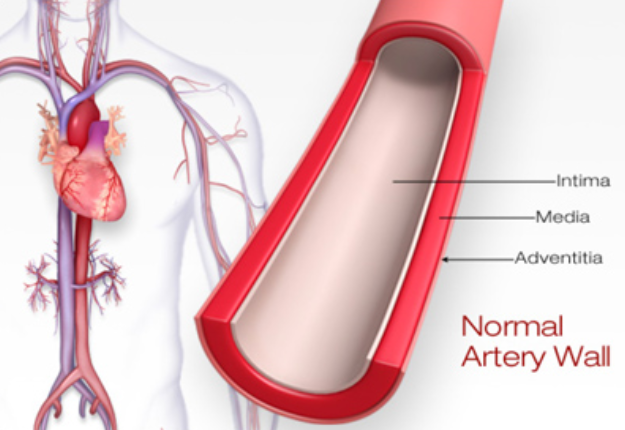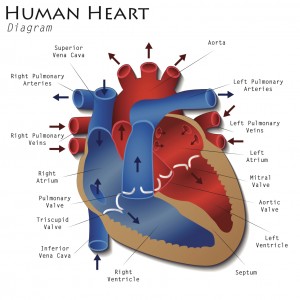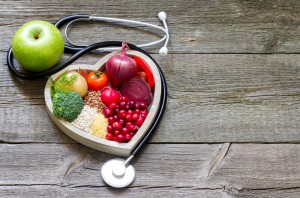
Let’s face it – life is stressful. Unfortunately, there is little we can do to change the circumstances. Health problems, money issues and personal relationships can all be contributing factors to your stress. But it’s summertime – a time to relax and enjoy the sunshine with loved ones. If you find that your lifestyle leaves you very stressed out, it is important to recognize the signs and symptoms in order to rectify the situation before it turns into something much worse. Understanding your current state of wellness improves your knowledge, helps you set goals and empowers you to make better choices for a healthier life. Here are common symptoms of stress:
- Headaches
- Backaches
- Rapid heartbeat
- Fatigue
- Difficulty sleeping
- Recurring nightmares
- Irritability
- Loss of concentration
It is important to investigate symptoms of stress as prolonged stress poses a potential health threat. Chronic stress is believed to raise the risk of increased blood pressure (hypertension), heart disease, irritable bowel syndrome (IBS), chronic back pain, depression and a reduced immune response. Because of these additional health problems, try to lower the risk by adding these suggestions into your daily lifestyle:
- Discuss your symptoms and your feelings about them
- Keep a diary to gain insight into your concerns and emotional patterns
- Exercise regularly engaging in both aerobic and weight training
- Practice relaxation techniques such as yoga, meditation deep breathing exercises
- Maintain your immune system by eating well balanced meals, exercising regularly and getting sufficient sleep
- Avoid destructive behaviors, including overindulgence of alcohol, caffeine or smoking
- Seek professional help if any of your symptoms persist, interfering with your sense of well-being and/or your personal/work relationships
If you would like more information on stress prevention, contact Dr. Gordon C. Gunn MD at 714-912-2211 or visit www.gordongunnmd.com to schedule an appointment today.
Dr. Gordon Gunn proudly serves Fullerton and all surrounding areas.



 High blood pressure, or hypertension, currently affects 1 out of every 3 American adults. High blood pressure often has no signs or symptoms and is therefore called the “silent killer” as it is one of the most important factors leading to heart attacks, strokes, heart failure, kidney disease and early death. Here are some steps that can help to
High blood pressure, or hypertension, currently affects 1 out of every 3 American adults. High blood pressure often has no signs or symptoms and is therefore called the “silent killer” as it is one of the most important factors leading to heart attacks, strokes, heart failure, kidney disease and early death. Here are some steps that can help to 

 Do you have to get up more than once in the middle of the night to use the bathroom? When you are in public do you find yourself always looking for the restroom? Not only is it an inconvenience, but it can be cause for concern if it is a developing occurrence. After all, having an overactive bladder make daily life hard but there are many reasons it has developed. Diabetes, urinary tract infections or trouble walking can all be reasons you have an overactive bladder, so it is important to seek
Do you have to get up more than once in the middle of the night to use the bathroom? When you are in public do you find yourself always looking for the restroom? Not only is it an inconvenience, but it can be cause for concern if it is a developing occurrence. After all, having an overactive bladder make daily life hard but there are many reasons it has developed. Diabetes, urinary tract infections or trouble walking can all be reasons you have an overactive bladder, so it is important to seek  It is a scary thought to know you are at risk for a heart attack or stroke. Unfortunately, it is a truth we all need to accept. Every year, millions of Americans suffer from a heart attack, and nearly half of those heart attacks are fatal. Strokes are the leading cause of disability and the third leading cause of death in men and women. It’s time to take control and get heart healthy. In honor of
It is a scary thought to know you are at risk for a heart attack or stroke. Unfortunately, it is a truth we all need to accept. Every year, millions of Americans suffer from a heart attack, and nearly half of those heart attacks are fatal. Strokes are the leading cause of disability and the third leading cause of death in men and women. It’s time to take control and get heart healthy. In honor of 
 Of all the emotions one tries to avoid at all costs, it would have to be heartbreak. The end of a relationship or situation that you are emotionally invested in can not only affect your spirit and cause a spike in your sugar intake but can actually cause
Of all the emotions one tries to avoid at all costs, it would have to be heartbreak. The end of a relationship or situation that you are emotionally invested in can not only affect your spirit and cause a spike in your sugar intake but can actually cause